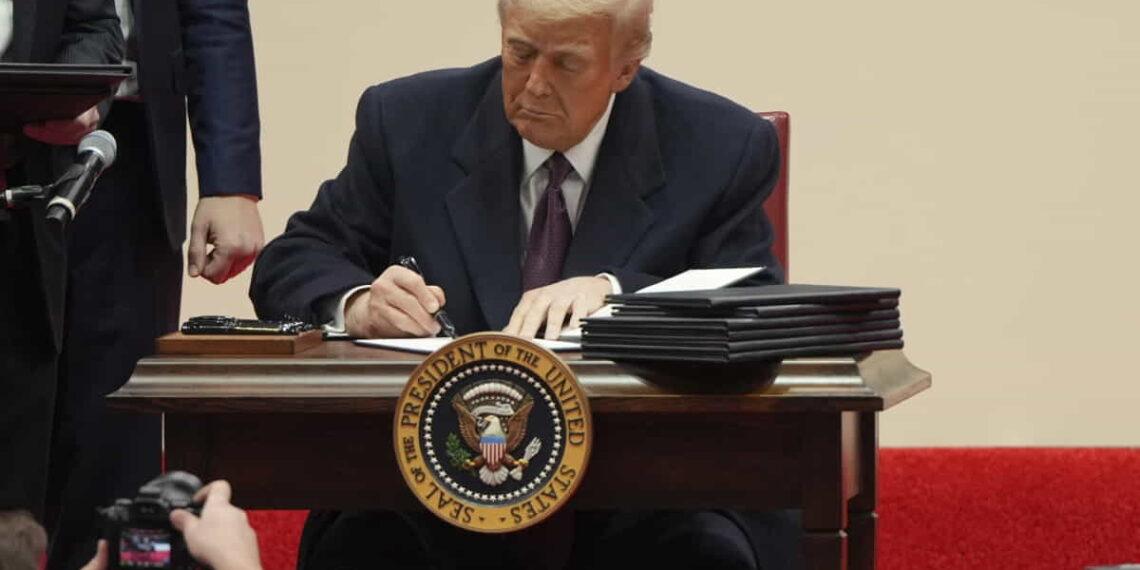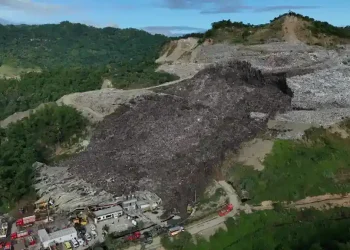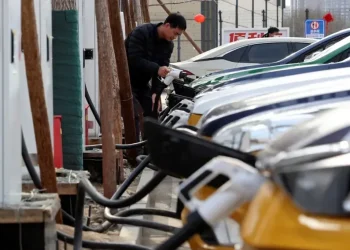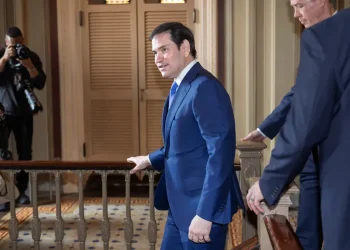Trump Signs Executive Order to Withdraw from Paris Climate Agreement – Again
President Donald Trump signed an executive order on Monday, directing the United States to once again withdraw from the Paris climate agreement. This decision delivers a setback to global efforts aimed at combating climate change and further isolates the U.S. from its allies in the fight against global warming.
Trump’s action, coming hours after his second-term inauguration, echoes his 2017 directive when he initially announced the U.S. would exit the landmark agreement. The Paris accord seeks to limit global warming to well below 2.7°F (1.5°C) above pre-industrial levels, with a goal of reducing greenhouse gas emissions from burning fossil fuels, such as coal, oil, and natural gas. Countries participating in the agreement must submit updated emission reduction plans, with a deadline of February 2025.
Trump’s Stance on the Paris Agreement
In his order, Trump criticized the Paris agreement, stating that it does not align with U.S. values and claims it “steers American taxpayer dollars to countries that do not require, or merit, financial assistance in the interests of the American people.” Trump emphasized that the U.S. should rely on its successful track record in advancing both economic and environmental objectives as a model for other nations.
Laurence Tubiana, CEO of the European Climate Foundation and a key architect of the Paris accord, expressed disappointment but stated that global action to combat climate change is stronger than any individual country’s policies. Tubiana stressed the “unstoppable economic momentum” driving the global transition to clean energy, which the U.S. has benefited from, but now risks losing by withdrawing.
Economic and Environmental Impact
The global clean energy sector is expected to triple to over $2 trillion by 2035, with the U.S. playing a major role in this growth. However, Tubiana pointed out that the worsening effects of climate change, such as devastating wildfires in Los Angeles, serve as a reminder that the U.S. is not immune to the crisis.
Gina McCarthy, former White House climate adviser under President Joe Biden, responded to Trump’s withdrawal order by arguing that staying focused on clean energy is key to achieving energy independence and creating jobs. McCarthy stressed that clean technologies have already lowered energy costs for Americans and continued progress in this sector is vital.
U.S. Withdrawal Process and Global Reactions
The withdrawal process from the Paris accord will take a year, with Trump’s previous withdrawal taking effect after the 2020 presidential election. When Trump first pulled out of the agreement, it shocked and angered many nations, but no other country followed suit. Instead, other countries, businesses, governors, mayors, and investors renewed their commitment to fighting climate change.
Experts, however, lamented the loss of U.S. leadership on the global stage. Climate activist Bill McKibben expressed concern that America would no longer play a pivotal role in solving the climate crisis, calling it the “greatest dilemma humans have ever encountered.”
Public Opinion on U.S. Withdrawal
Public opinion on the U.S. withdrawal from the Paris Agreement is divided. According to a poll by The Associated Press-NORC Center for Public Affairs Research, about half of Americans “somewhat” or “strongly” oppose the U.S. leaving the accord. Among Republicans, support for withdrawal is strong, but it is not unanimous.
The U.S. and Global Emissions
China is now the world’s largest emitter of carbon dioxide, while the U.S. ranks second. In 2023, the U.S. emitted 4.9 billion metric tons of carbon dioxide, a decrease of 11% from a decade earlier. However, the U.S. is responsible for nearly 22% of global carbon dioxide emissions since 1950. While the U.S. continues to contribute a significant amount of emissions, global efforts to reduce carbon emissions persist, despite Trump’s stance.
Global Concerns and the Future
Experts worry that a second term under Trump will further hinder international climate action. With Trump’s dismissal of climate change and his withdrawal from the Paris accord, countries like China might reduce their own efforts to curb emissions. Simon Stiell, the U.N. climate change executive secretary, urged the U.S. to continue embracing the global clean energy revolution, warning that ignoring it would send economic advantages to competing economies and exacerbate climate disasters like droughts, wildfires, and superstorms.
While the Paris Agreement remains open to any country’s participation, the uncertainty surrounding the U.S. stance is likely to have lasting implications for global climate efforts.
This article was rewritten by JournosNews.com based on verified reporting from trusted sources. The content has been independently reviewed, fact-checked, and edited for accuracy, neutrality, tone, and global readability in accordance with Google News and AdSense standards.
All opinions, quotes, or statements from contributors, experts, or sourced organizations do not necessarily reflect the views of JournosNews.com. JournosNews.com maintains full editorial independence from any external funders, sponsors, or organizations.
Stay informed with JournosNews.com — your trusted source for verified global reporting and in-depth analysis. Follow us on Google News, BlueSky, and X for real-time updates.














